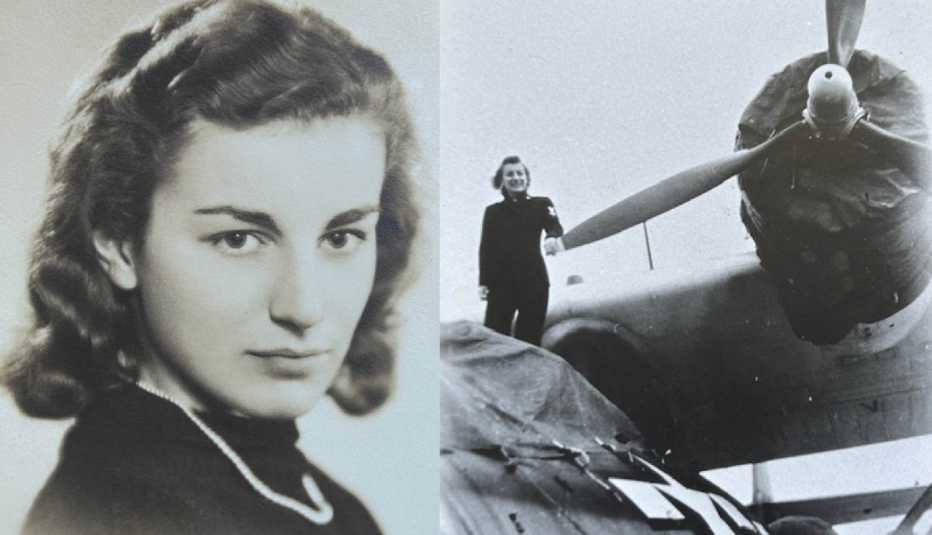AARP Hearing Center


Virginia Bellemeur joined the WAVES — Women Accepted for Volunteer Emergency Service, part of the U.S. Naval Reserve — in 1944 and retired as an Aviation Metalsmith, 3rd Class in 1946. She is now 100.
“There was a war on and it was all hands on deck,” she told AARP Experience Counts. “I wanted to contribute to my country." So, she left her small town of Montpellier, Vermont, and headed to Florida, where she was stationed at the Naval Air Station Pensacola, and started repairing aircraft, primarily PBY planes.
“There was a group of us and we women forged through the unknowns together. We were all driven by our desire to pitch in,” she said. “We knew we were doing something powerful, special and unique. There weren’t women doing this job before us girls.”
Bellemeur now lives in a nursing home in Pasadena, California, where she enjoys near-daily visits from her children and grandchildren. You might find her doing the word search, working on puzzles or watching the History Channel.
Her granddaughter, Leah Snell, said that Bellemeur’s service to her country wasn’t something she brought up much. After all, she’s a no-nonsense, get-the-job-done type of woman.


You can subscribe here to AARP Experience Counts, a free e-newsletter published twice a month. If you have feedback or a story idea then please contact us here.
“If leaves needed to be cleared from the roof, she would just get a ladder and a broom and climb up and sweep them off,” Snell said. “This kind of thing happened well into her late 80s.”
Bellemeur knew a group of immigrants from Mexico who lived nearby and she started teaching them English at night. “I don't know if this attitude was related to her time in the service or if she joined the service because of this attitude,” Snell said. “I have always felt it was the latter. The country was at war and the Navy needed servicemembers so she signed up.
“I do remember her saying something like ‘If you want to get something done, a woman can do just as good of a job as a man.’ She has a quiet strength and won't back down.”





































































More From AARP Experience Counts
MY HERO: What My Father Left Unsaid About World War II
Howard Mansfield's father never talked about his war experience. But why?Life Lessons From Former Green Beret Mike Vickers
He has been at the forefront of protecting America for the past five decadesHow to Maximize Your Veteran Tax Benefits
Expert explains federal and state tax breaks for retired service members
Recommended for You